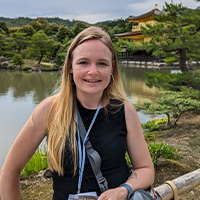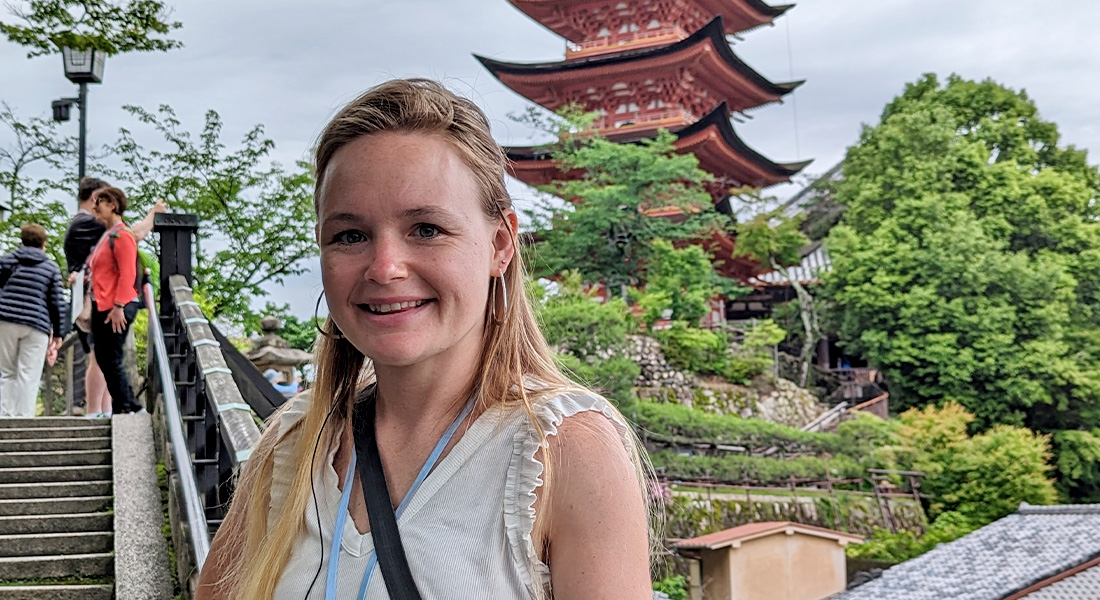
I recently returned from our Cultural Treasures of Japan tour, and to experience this trip is so much more than what you read about in the itinerary. By following my own curiosity to explore the unique sides of Japan, and by going guided with a tour manager and local guides who brought many interesting facts to my attention, I encountered many facets of Japanese culture I might have otherwise missed on my own.
On top of all the incredible sights and experiences during my travels in Japan, I returned with a few takeaways about the everyday aspects of life there that stand out from the rest of the world.
-
Pyjamas Included
Did you know that most hotels in Japan will provide you with pajamas? This tradition of offering “yukata” to guests came from ryokans – traditional Japanese inns. Modern hotels have kept the tradition going as a gesture of Japanese hospitality.
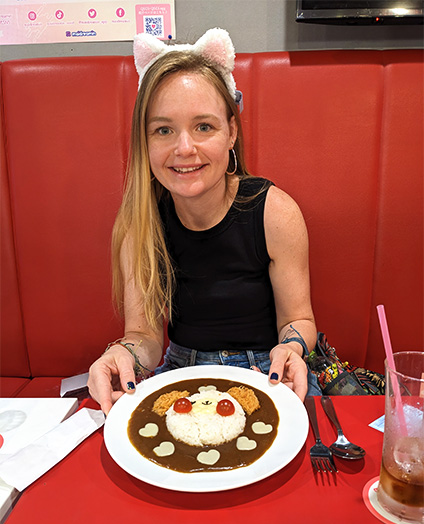
-
Cleanliness
I was fascinated by how clean everything is in Japan. One of our guides, Tamoe, explained to us that from a very young age, the Japanese are taught to keep everything clean and how in schools there are no janitors – in fact, the students are expected to keep their own space tidy. Subways had fabric benches that looked brand new and public bathrooms (referred to as “happy houses” by our guide) were extraordinarily clean.
-
Your Trash, Your Responsibility
In Japan, there are no trash cans anywhere. This is surprising given the cleanliness of everything. Spotting a rare trash bin here or there became something our guide would point out like it was an exotic animal! We learned that most Japanese people do not throw their trash away in public, but instead take it home to dispose of properly. They are aware of their responsibility for their trash and do their part.
-
Stop for a Snack
Eating and drinking whilst walking is frowned upon (even if it’s something purchased from a street vendor). Instead, you’re expected to stand to the side and eat right there. If the vendor happened to have a place to deposit trash, it was only to be used for what had been purchased there.
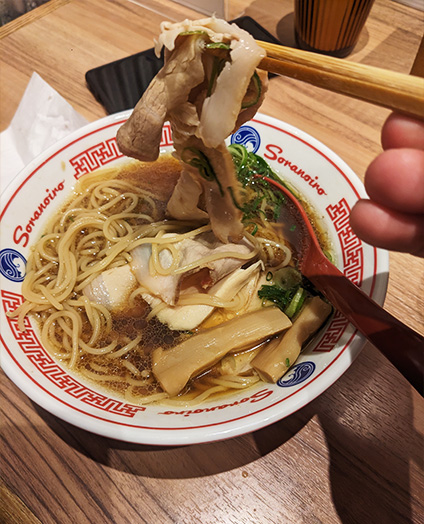
-
Slurping Approved
When you do stop for some delicious food, such as a bowl of ramen, forks are not normally provided. You can use chopsticks or go with no utensils as you sip and slurp away. It felt odd at first, but after looking around at everyone doing it, I realized it was acceptable.
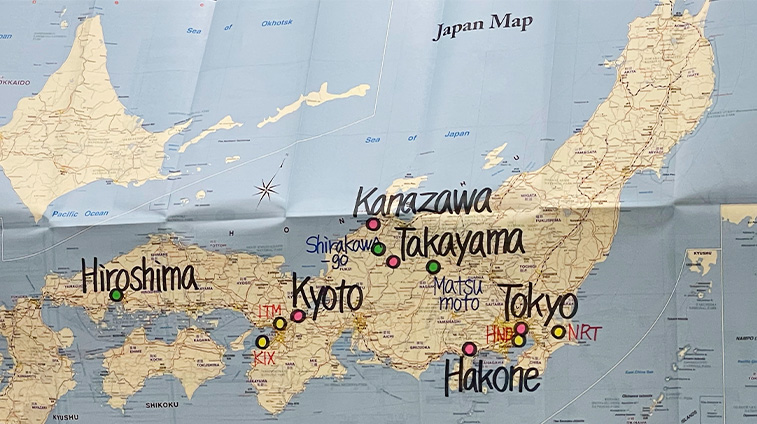
-
Look Both Ways
In Japan, cars drive on the left side of the road, so it’s important to pay close attention when crossing. It was interesting to see that everyone walked on the left side of the street, as well as on stairs – except for in Osaka, where everyone walked on the right.
-
Safety
I’ve never felt so safe in a country. I never worried about being pickpocketed, even on crowded trains. Our hotel was in a bustling area in Kanazawa, where there were always lots of people out. I was completely comfortable exploring the town on my own.
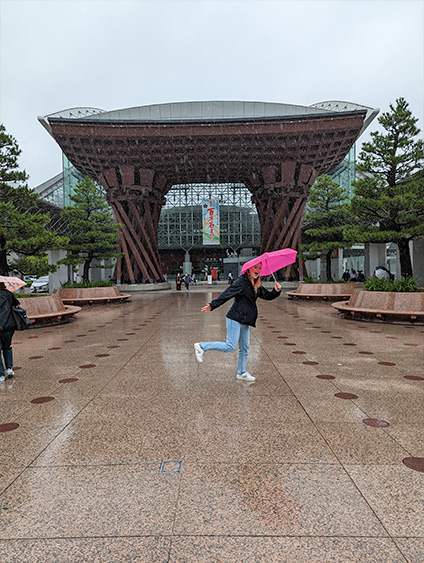
-
Umbrellas
I was obsessed with the whole umbrella culture in Japan. Rain? Umbrella! Sun? Umbrella! Various places we visited had locker systems in place for keeping treasured umbrellas sorted and safe.
The value of going guided to Japan is so much more than having all the included items covered such as transport, hotels, and sites. Having a knowledgeable guide is what makes this amazing destination less intimidating and offers the best experience, especially during your free time. It gave me the chance to really explore and notice the little things about this country. I knew that by going on a tour with Collette, it would bring out the best of a unique part of the world – and it absolutely did during my time in Japan.
